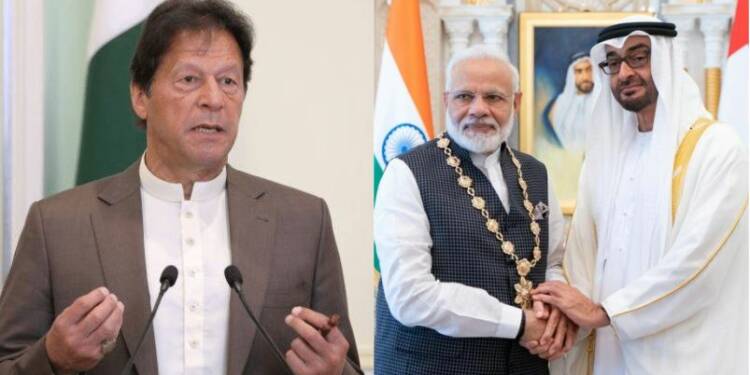The latest thaw in bilateral ties between India and Pakistan had many geopolitical enthusiasts thinking about the reasons which went behind the sudden positive moves. A report by Bloomberg has now revealed that the United Arab Emirates is playing the peacemaker between New Delhi and Islamabad, and has worked out a four-step “roadmap for peace” for the two nuclear powered countries to achieve lasting peace. Earlier this month, the UAE had demanded an immediate payback from Pakistan of a $1 billion loan which had reached maturity. Ever since, the enthusiasm of Pakistan to have peace with India has risen by leaps and bounds.
The line has been drawn for the Pakistanis. If they want to keep their joke of an economy afloat, they must rein in the only flourishing industry of theirs – that of exporting terror. Further, they must behave themselves and not poke India in the eye repeatedly only to be thrashed by it. India’s ties with the Arab world and Gulf countries have grown tremendously under the leadership of Prime Minister Modi, to the extent that countries like Saudi Arabia and UAE, which not until very long ago were the godfathers of Pakistan, are today forcing its hand to maintain peace with India.
To be fair, Pakistan has no option but to obey the UAE. If it tries to act smart, the UAE will simply pull the plug on it, and demand a repayment of the magnificent loans which it is owed by Pakistan. In order to not completely tank Pakistan’s economy completely and be credited for the same, Imran Khan has decided to make peace with India. How long the said peace lasts is yet to be seen.
Read more: “Aap ne Ghabrana nahi”, UAE asks Pakistan to return its $1 Billion as soon as possible
According to the Bloomberg report, the surprise joint statement announced by the Directors General of Military Operations (DGMOs) of the two countries on February 25, that agreed to end cross LoC ceasefire violations (CFVs), was the outcome of talks “brokered by the UAE” months earlier and that the visit of UAE Foreign Minister Sheikh Abdullah bin Zayed to Delhi on February 26 also discussed progress in the India-Pakistan “peace” process with External Affairs Minister S. Jaishankar. In addition, the report said the ceasefire announcement was the first step agreed to in the road, and that according to an unnamed official, more would follow.
“The next step in the process, the official said, involves both sides reinstating envoys in New Delhi and Islamabad, who were pulled in 2019 after Pakistan protested India’s move to revoke seven decades of autonomy for the disputed Muslim-majority State of Jammu and Kashmir. Then comes the hard part: Talks on resuming trade and a lasting resolution on Kashmir, the subject of three wars since India and Pakistan became independent from Britain in 1947,” the Bloomberg report said.
Something to the effect of a ‘confirmation’ to the same came in not from UAE, but instead from Saudi Arabia. Adel Al Jubeir was reported to have spoken on a news interview saying – “We work to stabilize the region — whether it’s trying to bring peace between Israelis and Palestinians; whether it’s in Lebanon, Syria, Iraq, Iran, Afghanistan; trying to reduce tensions between India and Pakistan; whether it’s stabilizing Sudan; whether it’s working to end the war in Libya or to deal with the G5 (Sahel) countries, in their fight against Boko Haram. We have played a positive role everywhere.” Interestingly, the UAE had officially welcomed the re-commitment of India and Pakistan to the 2003 ceasefire terms.
The peace initiative being driven between India and Pakistan by UAE and other Gulf countries is the most significant one in recent years, although its longevity will solely depend upon the actions of Islamabad and Rawalpindi. They must remember that peace for Pakistan is a necessity, while for India it is a luxury it will do just fine without.





















